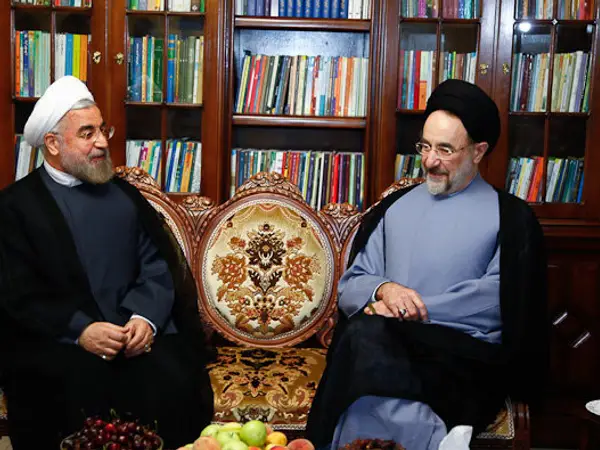Some ‘reformist’ politicians have warned that excluding critics in next year’s parliamentary elections can only worsen the legitimacy crisis Iran’s regime faces.
Since September, the country has been in turmoil. Protests have somehow slowed down in recent weeks, but there is no sign that the crisis is anywhere near resolution. In fact, many believe that the relative quiet these days is only the calm before a storm.
After protests during which people regularly chanted against clerical rule and its top authority, Supreme Leader Ali Khamenei, and the killing of over 500 protesters within the last four months, elections next year does not appear to be of interest to most Iranians now.
Young protesters who often chant “Reformist-Principlist, this is the end of the story” see little difference between regime hardliners and reformists who want to make changes in the Constitution and laws to make them more democratic within the framework of the Islamic Republic.
In November, some prominent reformists figures met with top officials including Chief Justice Gholam-Hossein Mohseni Ejei, Secretary of the Supreme National Security Council Ali Shamkhani, and Interior Minister Ahmad Vahidi to start a dialogue over the current circumstances and the unrest in the country.
Media reported that they demanded the authorities to stop violence against protesters and open the atmosphere and allow people’s voices to be heard. They were reportedly promised that a few of them could meet with and directly convey their concerns to Khamenei but it appears that their plea has completely been ignored.
Some reformists have argued that the only way the country can be saved from its dire economic, social and political crisis is through the ballot box, but also said the hardliner Guardian Council which staunchly refuses to allow anyone outside their political circle to run in any elections has completely blocked that path.
However, it is not clear if ‘reformists’ only want their names to appear on ballot papers, or are also in favor of allowing opponents of the regime to be allowed to run.
Even before the current spate of protests, a considerable majority of Iranians were already deeply frustrated with the tightly controlled elections and voting for the very few moderate-reformist candidates who are allowed to run. Even when elected, these officials had no real power in a system dominated by hardliners and conservatives collectively known as Principlists.
The deeply disgruntled electorate very clearly turned its back on ballot boxes in the latest election. Participation rate in the June 2021 presidential elections dropped to an all-time low of 48%. These included 13% void ballots cast by voters who felt they had to vote but did not favor any of the four candidates filtered by the Guardian Council, including a less prominent reformist.
In a note in Etemad newspaper on January 22, former reformist lawmaker Kamaleddin Pourmoazen warned that it is no longer possible to accede to “a hugely ambiguous and untransparent [election] law” that hardliners easily manipulate to limit the nation’s right to determine its destiny.
Referring to the low turnout in the previous parliamentary and presidential elections, he said it is no longer possible to run the country with officials elected with minimal participation of the electorate and ignore the rest.
The totalitarian Paydari Front, which has now spread its dominion to nearly all centers of power, will only make the country more vulnerable against threats, both domestically and internationally, and deepen the rift between the rulers and the ruled, he warned. In the current circumstances the ruling hardliners have no way out of the impasse they have created other than opening up the political atmosphere for real, he argued.
